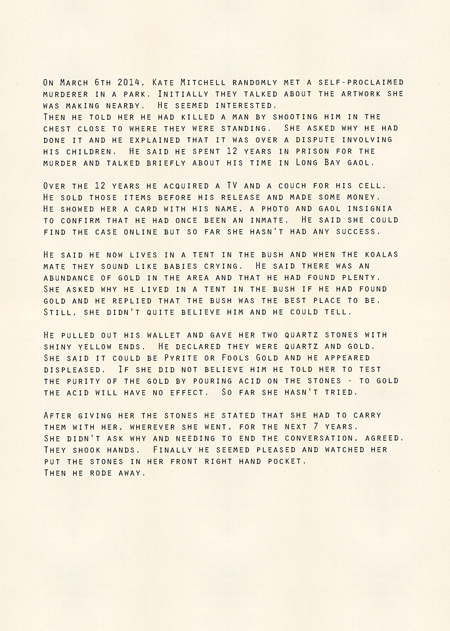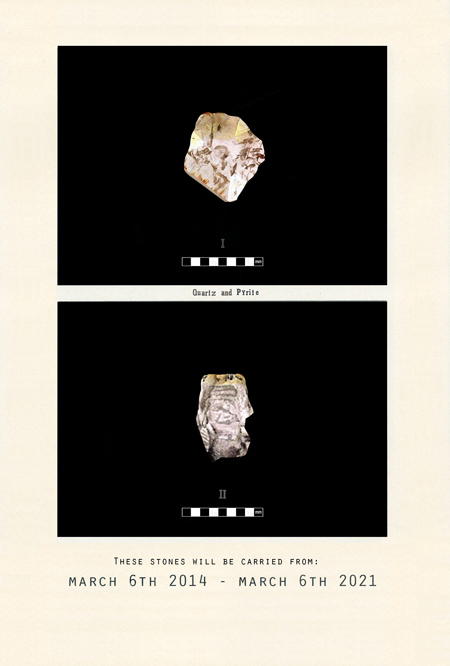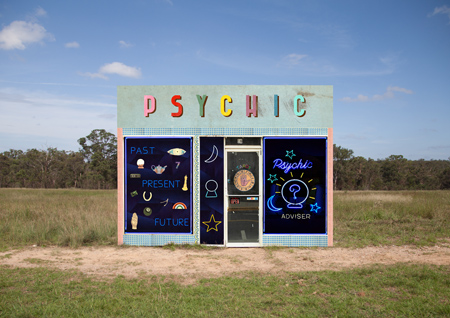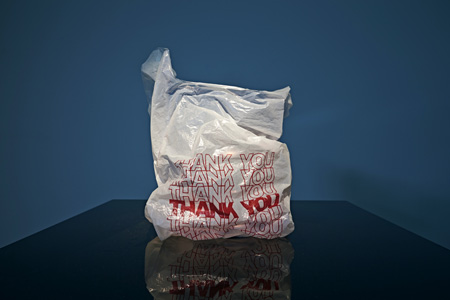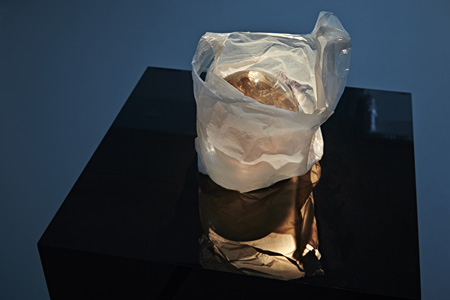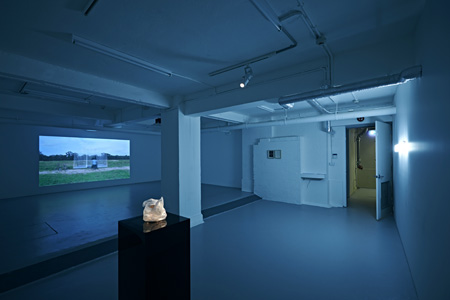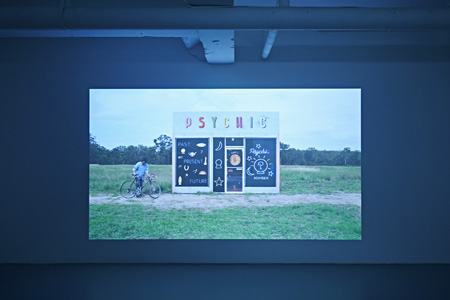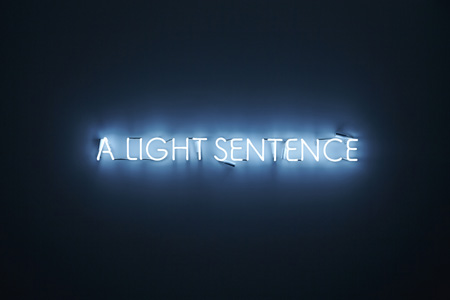
“Future Fallout” is the culmination of a body of work begun as part of “Temporary Democracies” curated by Paul Gazzola. “Temporary Democracies” is a site specific experience in Airds in South Western Sydney which involves ten artists. The video “Future Fallout” was commissioned by Campbelltown Arts Centre for that exhibition.
“Future Fallout” continues Mitchell’s exploration of the comic and cartoon logic. In “Future Fallout” Mitchell cycles (a characteristic mode of transport for Mitchell if she has ever passed you at speed in Sydney) up to a “Psychic Shop.” Already there is a slippage here. What is a “Psychic Shop”? It could be where a psychic is housed or more likely a late capitalist version of a Fortune Teller, where the shaman has now somehow been broken up into a store bought, easier, new age solution. The work “It’s In The Bag” seems to highlight how we shop around for the easiest take-away solutions without confronting the real ethical contradictions of our choices. As Mitchell opens the door in a Buster Keaton style, it reveals the artificiality of the video world as the set falls down.
As in other works, the comic actually becomes the existentialist absurd. In Camus’s essay “The Myth of Sisyphus”, he mentions in his final line that life is absurd but it is that meaninglessness that we all share and that ultimately is the joy of life. This particular use of the word absurd gave rise to the term absurdist theatre. In this show there are many ethical choices, decisions to be made, but on what basis do we choose? How can we know the future? On, who or what can we rely? For the existentialists the fact that God is dead, meant we were now confronted with the immensity of complete freedom. In the end you can’t rely on the psychic, the shaman or anyone external to your own ethical acts.
As the Psychic Shop falls over Mitchell shrugs and cycles off into the future regardless. There is no great failure here. It is almost like the unveiling of the Wizard in the Wizard of Oz. The shock that the Wizard is merely a little man quickly shifts to well there is some wisdom here anyway. We are all in this together, acting as ethically as we can. We may have beliefs and things that we hang our ideological hats on; deep down we know that they are choices and not facts but we live by those choices anyway.
One small but beautiful work sums this up, “Fell Into It”. While working on the video in Airds, Mitchell by chance met a past murderer who told her his life story. He gave her, as a fellow traveller and one expects as a poetic soul, two rocks which he had found locally. He made Mitchell promise to carry them on her person for seven years. There is a certain ethics at stake in a promise like this (which is very similar to a marriage oath). No-one asks you, or forces you to accept a particular promise but once accepted you are bound ethically to maintain this promise. It is not based on broad social ethics but on an intimate agreement between two people. This is a very important and primal ethical bond. Mitchell has in turn framed this act as a form of “covert endurance performance.” The act is completely on the line between art and life, where life’s poetic gifts and vows meet with art’s conceptual history of these things; but art here seems somewhat of an interloper.
“A Light Sentence” on the other hand returns the viewer quickly to the long history of conceptual neons. It is not particularly personal but is a fun disavowal of conceptual art’s high seriousness. It is self referential in a way only contemporary art could play with. It shows in fact that conceptual art is already aestheticised (contrary to the modernist myths) and that art is light in regard to Mitchell’s oath in “Fell Into It”.
We are all bound to each other through our decisions and promises. This show highlights the ethical basis of how we must choose the way we live our lives. We are totally free to make whatever choices we want, there is no shaman figure, or indeed genius Romantic artist, to tell us how to live. If we do not choose though with the other in mind, selflessly and in a connected way, our choices will be unethical. Mitchell shows in this exhibition how we all share this dilemma, that we share our part in shaping the future.

